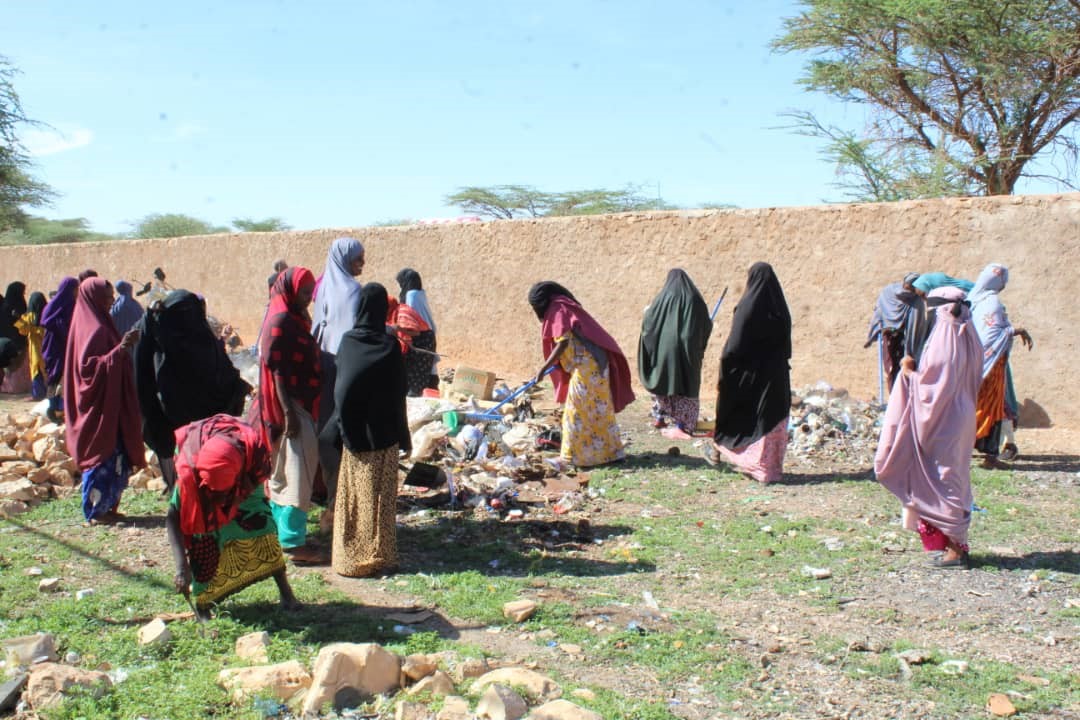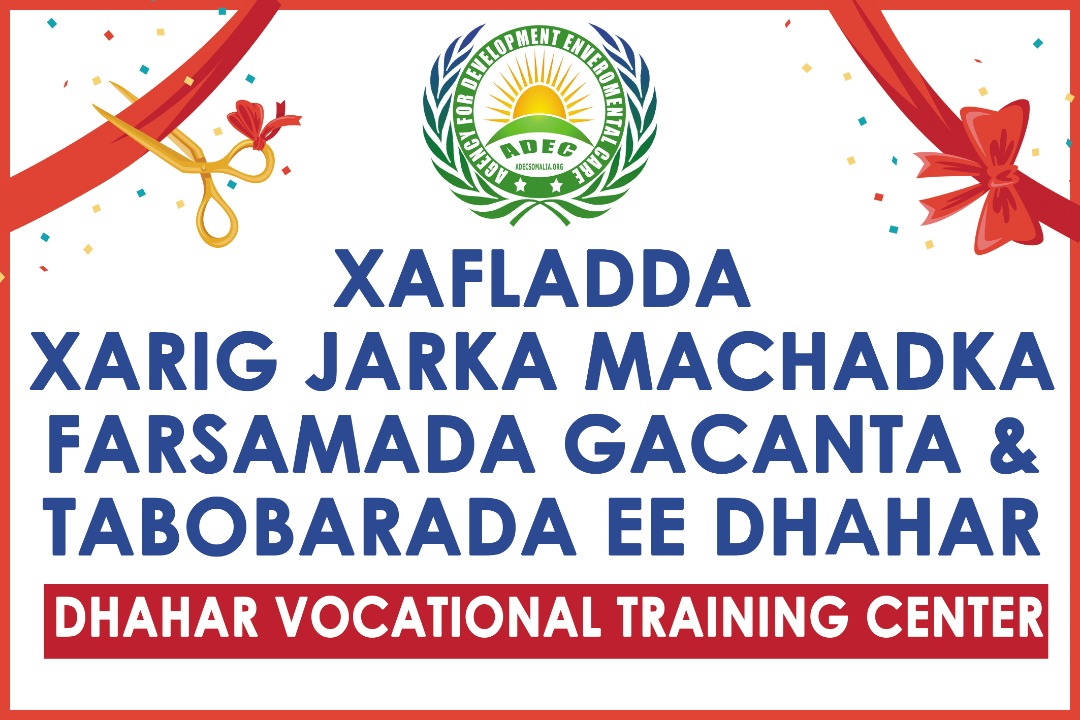
Implemented Livelihood Project- Balibusle and B/qol
Agency for development and Environmental Care (ADEC) previously known as Somali Volunteer for Development and Environmental Care (SVDEC) has been implementing relief and livelihood projects in Sanaag region, particularly Dhahar district. The aim of the two projects was addressing the water shortages and to reduce environmental degradation through soil and water conservation to improve availability of water and rangeland resources in the target areas in Dhahar district of Sanaag region by the implementation of soil and water conservation and the water catchment. The target population of the project is mainly affected at the dry seasons when all the available water harvesting facilities of both cemented Berkeds and sand dug-outs all exhausted.
The community water scarcity had serious consequences to the health of humans and their livestock. Men have to migrate long distances with livestock to reach water. Women that collect domestic consumptions had also walked longer distances to fetch water for their families and had been exposed to risks and increasing their work burden .and the time for other family affairs has reduced. Also, the community had prioritized soil and water conservation due to limited rangeland resources which lead to poor livestock condition and low production. Similarly, the soil and water conversation play a great role the massive soil erosion by rain water and environmental conservation. Majority of the community are pastoralist, meaning they depend livestock for their livelihood, therefore, availability of water and forage is very essential.
Livestock health is affected and their ability to produce milk, which is vital for household nutrition, is reduced partly because of limited access to water the livestock heads is affected by the reduction in weight in which intern contributes to prevailed food insecurity of the pastoral communities.
The rehabilitation of the water catchments was started on 15st March 2019 and was continuing for a period of 5 months. This final report narrates the overall achievements progresses of the project and specifies the report that have been during from 15st March 2019 to 31st July 2019.
The communities have harvested more water in the rehabilitated catchments and the other activity improved the environmental degradation hence the effect of the massive soil erosion and water scarcity on both humans and livestock has substantially reduced. The project has also provided increased income and employment opportunities to 226 employees and hence the food Security has reduced.
Objectives of the projects
The objectives of the project are;
- To improve food security and food accessibility in the target areas.
- To invest in community asset to improve their resilience against shock and crisis.
- To enable inclusive participation of all community members to achieve sustainable development.
Challenges
Some of the challenges identified as part of the implementation are;
- The project was to start on 1st February, 2019 and end 30th June 2019 but due to delay in FLA approval it was started on 15th March, 2019.
- The June activities was suspended by WFP head of Ao
- Heavy rock and stones were the main challenges
- The participants did not receive their entitlement for the months of Jun and July-2019.
- Slight interruption from the rain water which filled with huge mud in the water catchment
- Community and participants asking change of modality to voucher.
IMPLEMENTATION STRATEGY
ADEC conducted assessment, community-based participation plan (CBPP) and consultation with the local authority and community elders to select the most food-insecure and vulnerable villages in the district. Selection of target beneficiary has been done jointly by the local authority, community elders and committee while ADEC verified the eligibility of the selected beneficiaries. The project sites where the activities are being implemented are pre-identified suitable public land. At every project sites ADEC erected project signboard with beneficiary entitlement and activity type.
The participants at every site have foreman for supervision of the activity and marking of the daily attendance register to ensure every participant achieve the required work. Participants did not get their conditional monthly entitlement for the months of June and July-2019 (Balibusle June and July, Baraagahaqol only July-2019). The conditional food transfer received were received 60% and 80% of their planned food at Balibusle and Baraagahaqol sites respectively.
To ensure transparency and accountability, the previous months all the beneficiaries received their entitlement using SCOPE card through finger print authentication. During the distribution, ADEC field staffs does monitoring on the distribution as well as project activity progress and submit monthly distribution and activity progress report to WFP. In addition, the field staffs carried out beneficiaries’ sensitization process by noticing the work norms; complain feedback mechanism, their entitlements, food commodities and validity date of the food voucher. ADEC has publicly posted materials for project visibility, beneficiaries’ entitlement, beneficiaries’ figure and the funding agency. Moreover, ADEC has established good documentation to ensure information sharing and transparency to its stakeholders including the participants, the funding agency (WFP), the community, the local authority and other community-based organisations in the district.

















